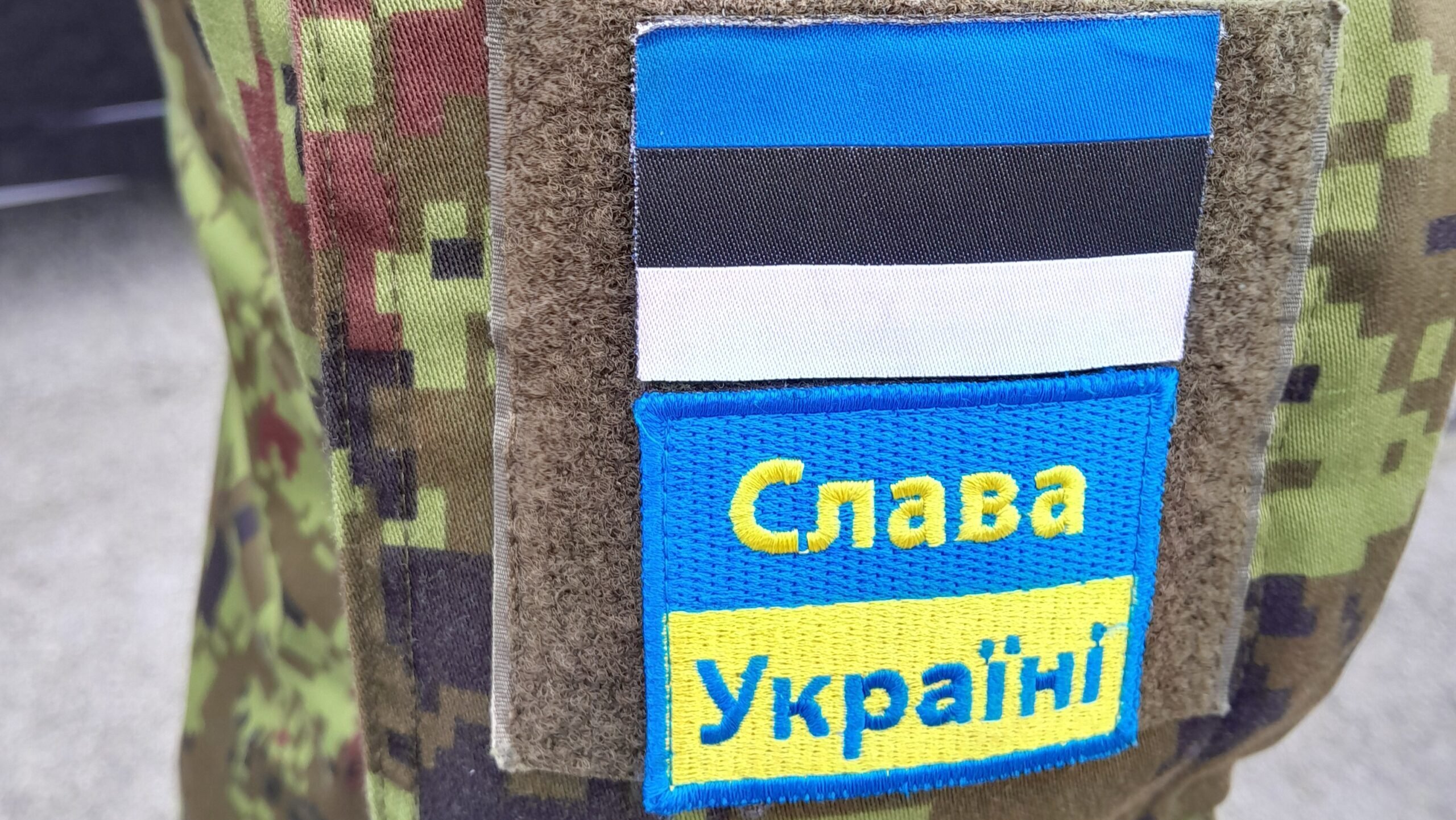Estonia had discussed sending non-front line troops to Ukraine: General

A “Slava Ukraini” patch sits just below an Estonian flag patch on the arm of a military official in Estonia. (Lee Ferran / Breaking Defense)
TALLINN — Estonia’s military months ago had internal discussions about the potential for sending its troops into western Ukraine, far from the front lines, to take over some non-combat missions in order to free up Ukrainian troops to go to the front, the Baltic nation’s chief of defense told Breaking Defense.
But, Gen. Martin Herem said Wednesday there hasn’t been “serious discussion” of the move since the idea of foreign troops in Ukraine has become polarized in public between “doing nothing” and “fighting.” Herem noted there were several other ways troops could help without putting themselves in frontline combat, including medical or logistical missions, or perhaps even aiding in air defenses for western cities.
Herem’s comments came after the prime minister of Lithuania, Ingrida Šimonytė, told the Financial Times she was open to sending Lithuanian troops into Ukraine to train Kyiv’s forces there.
The FT wrote that Šimonytė predicted Russia could see the move as an escalation, but added, “If we just thought about the Russian response, then we could not send anything. Every second week you hear that somebody will be nuked.” Šimonytė said Ukraine had not requested its troops.
A key Estonian lawmaker, Foreign Affairs Committee chair Marko Mihkelson, also called out Russian nuclear “blackmail” and pushed further on the foreign troops question, saying European nations “have to start thinking about a coalition of the willing” to more directly help Kyiv, potentially with direct combat.
Mihkelson said in a discussion for the Kaplan Public Service Foundation Wednesday that the effort could “start with air defense.” He cited the allied response to Iran’s drone and missile barrage against Israel in which US, UK, France and Jordan all helped to down incoming threats. (Breaking Defense accepted accommodation from KPSF in Estonia.)
Would Estonia be a part of such a coalition of the willing? “Yes, I hope so,” Mihkelson said. “We know our duty.”
The idea of foreign troops in Ukraine has been a flashpoint in recent weeks, after French President Emmanuel Macron said in February such a move should not be taken off the table. Beyond a stern, if predictable, Russian response, France’s allies too balked at the suggestion. Days after Macron’s comments, German Chancellor Olaf Scholz said “that what was agreed from the outset among ourselves and with each other also applies to the future, namely that there will be no ground troops, no soldiers on Ukrainian soil sent there by European countries or NATO states,” according to Reuters.
The US Ambassador to Estonia, George Kent, likewise pointed Breaking Defense to the Biden administration’s policy of aiding Ukraine through significant aid packages, but a firm commitment not to send in American soldiers. “You will not see American troops fighting in Ukraine,” he said Wednesday. For months the US has trained Ukrainian servicemembers in Europe — outside Ukraine — and in the US.
Western leaders have long feared the conflict in Ukraine could spill over into a war between Russia and NATO, potentially involving nuclear weapons. But the sense in Finland and Estonia in recent days has been that if more is not done to help Ukraine win now, that will happen anyway as Russian President Vladimir Putin follows through on dreams of reconstituting the former Soviet Union.
When Mihkelson was asked whether sending Estonian troops into Ukraine would increase the likelihood that Estonia could itself become a new front line in a larger war, he said, “We will be the front line if we don’t do it.”
“Right now, all of Russia’s capabilities are in Ukraine,” he said, adding that it is “crucial” that it be “destroyed” there.
If there is a coalition of the willing, and if Estonia does decide to join, Tallinn would not have any “caveats — we are all in,” Mihkelson said, and he would expect other allies to “do the same.”
“Let’s hope we don’t need to do that,” he said, “but we have to be prepared.”